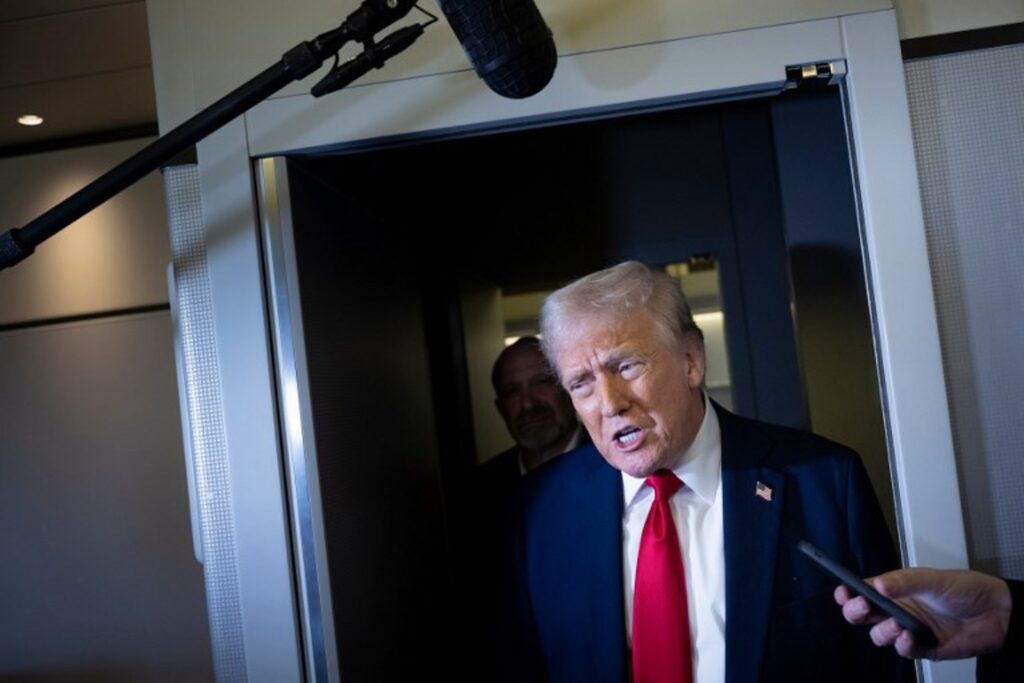European capitals are readying themselves for the latest round of impending economic shocks which will inevitably follow a scheduled Rose Garden announcement by US President Donald Trump later today.
On top of the tariffs already levied on aluminium, steel and vehicles, Trump is preparing another round on imports which, at the time of writing, are still unknown. Furthermore on Thursday at 06:01 (Brussels time), Washington plans to implement the additional 25% tax on foreign-made cars and parts used in vehicles assembled in the US.
"We are going to be very nice," assured President Trump on Monday, promising the initiative would spark an "American renaissance" and that other countries had been "taking advantage" of the US, the richest country in the world.
The White House Press Secretary Karoline Leavitt added to this on Tuesday, stating: "Unfortunately, these countries have been ripping our country off for far too long," she said. "They've made, I think, their disdain for these the American worker quite clear."
According to the Trump administration, foreign countries (including allies) exploit access to the American market without reciprocating – because the US imports more than it exports. These tariffs are aimed at reducing the budget deficit, Belga News Agency reports.
Yet on Tuesday, the mood in Washington appeared to suggest the tariffs could go much further with a flat tariff on all imports as high as 20%, according to the BBC. It would help Trump achieve his political vision of bringing back manufacturing jobs to the US, notably cars.
The uncertainty around the announcement has unsettled the global economy and European capitals.
European Commission President Ursula von der Leyen reiterated that the European Union is open to dialogue but has a "strong plan" to strike back "if necessary." US President Donald Trump is expected to announce import tariffs on Wednesday morning against countries that already have tariffs on US products.
“Everyone wins with a constructive solution. But I also want to be very clear: Europe did not start this confrontation. We do not necessarily want to take retaliatory measures, but we have a strong plan to strike back if necessary,” said von der Leyen in the European Parliament in Strasbourg.
MEP Anna Cavazzini, who sits on EU-US trade relations (INTA), called on the EU to implement a European digital tax against the US tech sector.
"These tariffs are so extreme that targeted counter tariffs alone will not be enough. Europe must strike back where it hurts Trump the most, whether in the digital sector or in industries central to his political base," Cavazzini said.
Among the EU's options, Cavazzini argues using the EU’s anti-coercion instrument, which would restrict American companies' access to European banking, insurance, and capital markets. It could also exclude US bidders from EU public contracts, or limit advertising on US social media platforms.
Effect on Belgium
In Belgium, pharmaceuticals, vehicles, machines, chemical products and precious metals are the major exports to the US.
The US import tariffs could cost the Flemish economy at least €500 million per year, De Morgen reports, with potential for even greater losses. However, the regional Flemish Minister-President Matthias Diependaele (N-VA) insists the region has the economic strength to absorb the shock.
The sectors in Flanders most affected would be pharmaceuticals, chemicals and cars. A special cell has been set up to help Flemish companies affected by the economic shocks caused by the tariffs. Diependaele insisted that Flanders was finally able to limit the effects of Brexit by supporting the sectors concerned.
In Wallonia, the pharmaceutical sector (75%) is also likely to suffer more from the rise in customs barriers, followed by food (1.5%) and equipment manufacturers (7.3%), according to the Wallonia Export & Investment Agency.
Walloon steel could also be severely hit. In 2023 (latest year for complete statistics) they amounted to €6.2 billion, or nearly 11% of the total Walloon exports.

